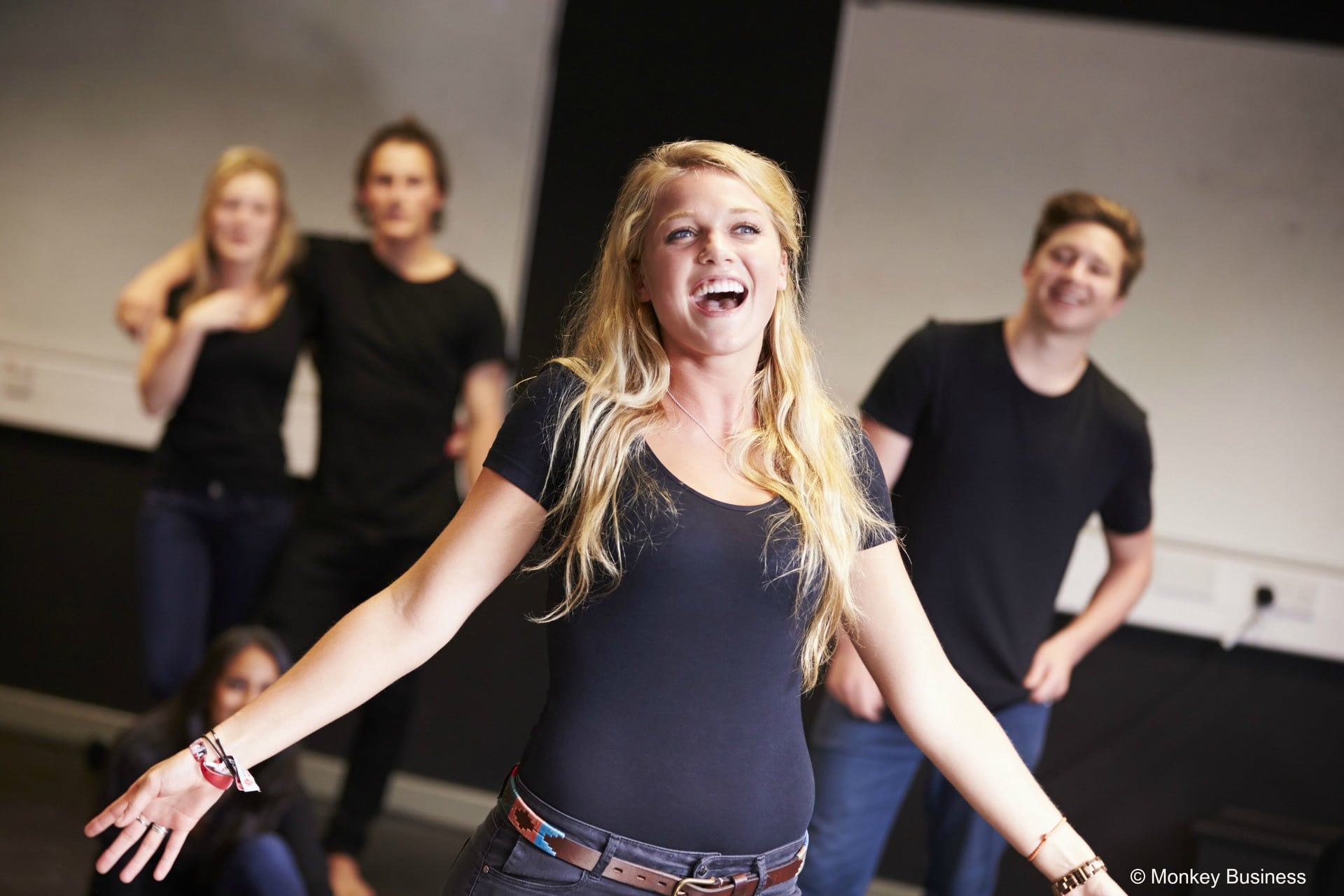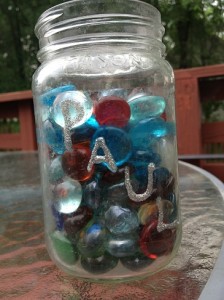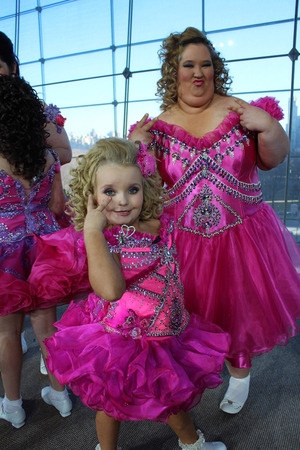3 Ways Improv Can Help Improve Students
By Guest Blogger Jen Oleniczak Brown, local improv extraordinaire
I’ve been teaching improvisational comedy to people ages 3.5 to 75 for almost half my life (and I’m not in my 20s anymore!) About half of my students are in PreK-12th and (secretly) are some of my favorites. Through after-school programs, enrichment during school, summer camp, collaborative efforts in school subjects, mandatory school plays and team building, I’m almost always teaching someone that doesn’t want to be an actor when they grow up. My audience encompasses every student and through working with non-actors, I’ve witnessed how incredible improv is for children – from the shy introvert who fears raising their hand all the way to the class clown.
There are three major ways improv improves students:
1. Public Speaking
I could talk for hours on how improv helps all communication skills, and public speaking is at the top of my list. I’m going to alter the definition of public speaking and open it up to all conversations, whether they are with one person or fifty.
Students spend a lot of time working on curriculum, and at times, that brings in the obligatory report that has to be done out loud in front of the class. This is usually focused more on content than delivery, and generally is scripted. This process is repeated and they leave school with the ability to read a report out loud. Fast forward to interview situations, meetings in and after college you’ve got a group of individuals that never learned how to effectively talk to other people. So they take a stance that there is a ‘right way’, which creates a stigma of the ‘wrong way’, and we’ve contributed people to the statistic that fear public speaking more than death.
Improv is all about speaking in front of people. Watching students go from being shy to creating crazy characters and trying new things ‘on stage’ is possibly my favorite part of teaching. Take the idea of speaking in front of people, and expand it to performance; even with non-actors, they have to learn to project, enunciate, face the class, make eye contact and be interesting. Sounds like a great public speaker!
2. Collaboration
Group. Projects. Cue collective groans, and know that many students also dislike group projects. In the schools I’ve worked in – Chicago, NYC, and NC – the mere mention of ‘group’ elicits some level of exasperation. Everyone learns within our first few group projects that there are always people who don’t do their share for a multitude of reasons. Sometimes they don’t even know what their share should be!
Cue improv: It is NOT stand-up – it’s all about the team. You can’t make a conversation work without another person, and the best moments are built with multiple people adding to the ‘world’ that gets created in a workshop or class. The idea of Yes, And – affirming and elevating one another – is collaboration and teamwork at it’s best.
3. Confidence!
The social aspect of school is hard and gets harder the older students get. Being ‘cool’ and accepted changes day to day, and that hot-cold environment can leave even the most outgoing student feeling left out. We tell students, ‘speak up in class!’ or ‘don’t worry, everyone feels like this!’ but what tools are we providing to build confidence?
Improv and the involved positive risk-taking build confidence. It is all about shared vulnerability in a safe space. Students are ‘on stage’ doing silly things in front of peers, and everyone is taking a turn looking silly. Through this positive, shared risk taking, they develop a greater comfort level with themselves, building confidence. This past summer I was teaching camp, and we created a very student-centric environment. It was up to them to decide what went into the improv workshop at the end of the week. One of the shyer boys, whose mom enrolled him in improv camp to work on confidence, said to his two more outgoing friends that he wouldn’t perform with them if they didn’t stop being ridiculous. Judging how his friends reacted, he, with no prompting from the teachers, stood up to his friends in a completely different and unexpected way. The two outgoing and class-clown type friends immediately toned it down and focused their energy on the work. And guess what? In the workshop, they were truly funny.
These are just a few ways I’ve seen improv truly improve students. In my ideal ‘life-skills for everyone’ world, students would take improv in the same way they are required to take PE, Science, History, and English. Because in the end, we’re not only preparing our children to succeed in a job, we’re also preparing them to succeed at life.
Have you seen improv improve someone you know? Let us know in the comments below!






